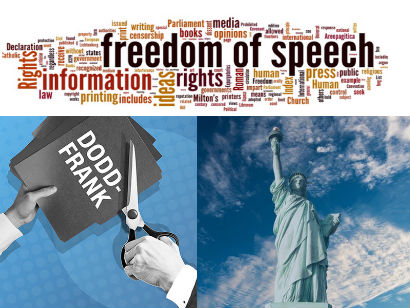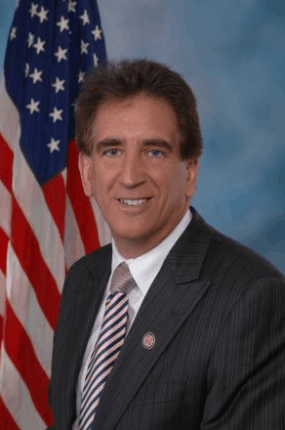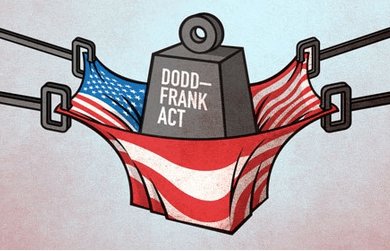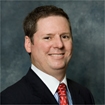
“The Central Government should be limited to basic functions. Defending the nation against foreign enemies, preserving order at home, mediating our disputes.” – Milton Freidman.
The widely cherished First Amendment rights – especially to freedom of speech – is a hot topic on many fronts.
“I believe that churches have a right of free speech and an opportunity to talk about positions and issues that are relevant to their faith,” said Rep. Jim Renacci, R-Ohio.
“We think it’s very, very discriminatory [the MLO rule] to the [MH] industry, and it hurts the consumers,” said Dick Ernst, manufactured home industry finance consultant, to MHLivingNews.


While seemingly unrelated, in both cases, freedom of speech is being restricted by the U.S. government, through what some say are problematic applications of federal laws.
The quote by Representative Renacci, per Newsmax, is regarding a GOP bill which would allow churches to be able to back political candidates.
It would be in keeping with a Trump Administration campaign promise to Evangelicals and others faith-based groups that provided his ticket and the GOP with important support last November.
Currently churches, as well as non-profits, are banned from taking a political stance and endorsing a candidate during any elections, while they receive tax-free benefits.
The proposed bill would allow them to once more openly back a political candidate, should a house of worship choose to do so. Under the plan, faith-community support could occur without the risk of losing their tax-exempt status.
Supporters say this would restore a fundamental right of free speech.
There is plenty of controversy about the bill.
Some opponents suggest that political endorsements by faith-communities could become a way to funnel tax-free funding into election campaigns.
Others simply don’t believe a pastor or church should be able to tell you who to vote for.
On the other side is the fundamentally constitutional question. Shouldn’t that speech be protected under the First Amendment? Shouldn’t churches have the same rights as, certain supporters say, a labor union?
This bill would seek to correct that problem.
Free Speech and Manufactured Housing
Similar to this faith community scenario, another piece of legislation has restricted the freedom of speech in the manufactured housing industry. The Dodd-Frank Act was passed in reaction to the market crash in 2008. Democratic lawmakers sought a solution to what they felt was a too-big-to-fail problem. A way to ensure that nothing of the sort ever happened again.
Congressman Frank denied before the meltdown that there was a risk. GOP leaders warned against the looming problems by 2003, as the video below reflects.

The Dodd-Frank Act, which was signed into law in 2010, was never intended to have anything to do with manufactured housing – said a letter by Barney Frank to an MHProNews reader, which read in part:
“I do not think it is necessary to include manufactured housing as part of our effort to prevent abusive mortgage practices, and I am now working with my staff to see if we can find a way to make a change that would deal with the problem you correctly point out… “
But somehow along the line, that understanding vanished.
Soon after the law was passed, the Consumer Finance Protection Bureau (CFPB) had set up a whole new set of regulations surrounding the financing of manufactured homes.
“It’s cutting off a route to home ownership for low- to moderate-income families around the nation — especially in rural areas,” said Ernst in an exclusive to MHLivingNews.

“This would be like going to a car dealer to buy a new SUV, and when you ask for help securing a loan, they hand you the phone book and say they can’t help you, so just pick one out yourself,” said Don Glisson, Jr., President and CEO of Triad Financial Services.
The net result forces people to risk violating a law, lose customers looking for information, or causing under-informed buyers to shop for lenders in a market that has a limited number of lenders.
One example MHLivingNews shared is the story of Eric Powell, who planned to purchase his father’s single-section manufactured home. But due to the restrictions placed on lending after the implementation of Dodd-Frank Powell was unable to secure a normal loan, and ended up paying a much higher rate than would have occurred prior to the CFPB’s regulations.
“Our compliance costs have quadrupled in the past three years alone,” said Glisson.
The limitations on what retailers can and can’t talk about with the individuals looking to purchase a manufactured home, while different than endorsing a political candidate, is still a violation of free speech, say industry professionals.
“In the past, a retailer could pre-qualify a buyer by accessing their credit reports and analyzing their income — just like every Realtor ® in America does — and with that info they could at least determine what lender not to send the application to,” says Glisson.
Ernst said something similar.
“Realtors refer customers every day to lenders, but CFPB says they’re exempt, because they’re not being compensated. But our people aren’t either,” says Dick Ernst.
While the two laws were born out of understandable concerns – in each case the impact has been a problematic harm to free speech rights. MHProNews will continue to track and report on such constitutional issues that impact business and politics. ## (News.)
(Image credits are as shown above, and when provided by third parties, are shared under fair use guidelines.)


























